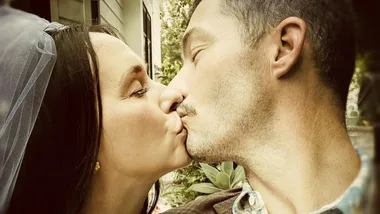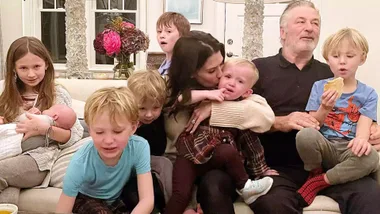Children as young as two are being prescribed anti-depressants. Elizabeth Burke looks at the arguments for and against medicating sad children.
When anti-depressant drugs like Prozac and Zoloft became mainstream in the late 90s there was outcry against the desensitisation of people, a loss of dealing with human issues without drugging and sedating, and of course the gamut of side effects. These concerns were for adults, and longstanding sufferers of clinical depression.
Now, news has emerged children aged six and under are being prescribed the drugs at a soaring rate and antidepressants are once again setting off alarm bells.
In pictures: 10 things not to say to kids
Federal Health Department figures reveal that children as young as two are being prescribed anti-depressants, with alarming increases in the numbers of prescriptions of the controversial drugs in the 2-6, and 7-11 age groups.
The Royal Australian and New Zealand College of Psychiatrists said it was disturbing that anti-depressants were being prescribed for children at all.
While health and community groups are speaking out against the prescription of anti-depressants to children, Australian Medical Association vice-president Dr Steve Hambleton said he had prescribed anti-depressants to six-year-olds who had benefitted from the treatment.
The argument against anti-depressants for children:
A common arguments against anti-depressants for kids, is to let them just be kids. A six-year-old is thought to have a limited understanding of their emotions and it can be of very little benefit to restrict emotional development through medical treatment.
Yes, some kids have a lot to deal with &151; there is bed-wetting, shouldering mum and dad’s struggles, bullying, and a whole world of soul-searching and identity issues that come with those early formative years. But are drugs really the answer? Should it be the parents’ responsibility to ensure their children don’t require this kind of treatment? Is it really possible for such a young child to be suffering from depression? And are drugs an easy fix to struggles kids and parents have been dealing with since the dawn of time?
On top of all this are the medical risks associated with the drugs, which have been linked to suicidal thoughts and are thought to be responsible for the deaths of five people aged 10-19 in the past two years.
The argument for anti-depressants for children:
On the other side is the argument that depression, untreated, could ultimately lead to suicide as well.
While anti-depressants are commonly prescribed to treat depressive disorders, they are also given to kids and adults to address obsessive-compulsive disorder and ease anxiety. Some health professionals believe that if these conditions aren’t treated early on, the child will be unable to lead a happy, fulfilled, normal life.
Health news: Lack of sleep could lead to overweight kids
So if the treatment is available, why not utilise it? A troubled childhood is not an uncommon scapegoat for troubles in adult life, so preventative troubleshooting may not be such a bad idea.
Your say: Do you think children should be prescribed antidepressants?
Video: Facebook depression

.jpg?resize=380%2C285)









